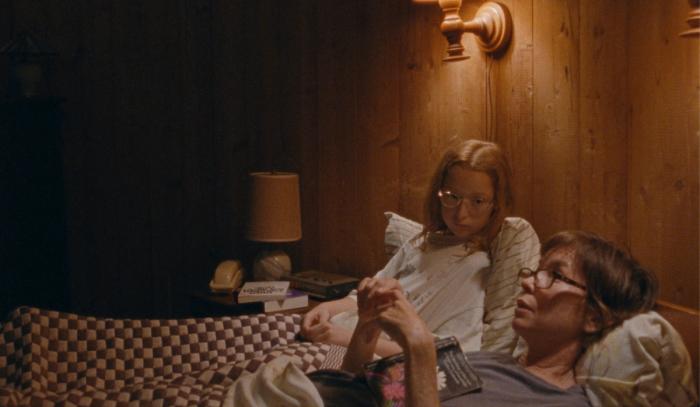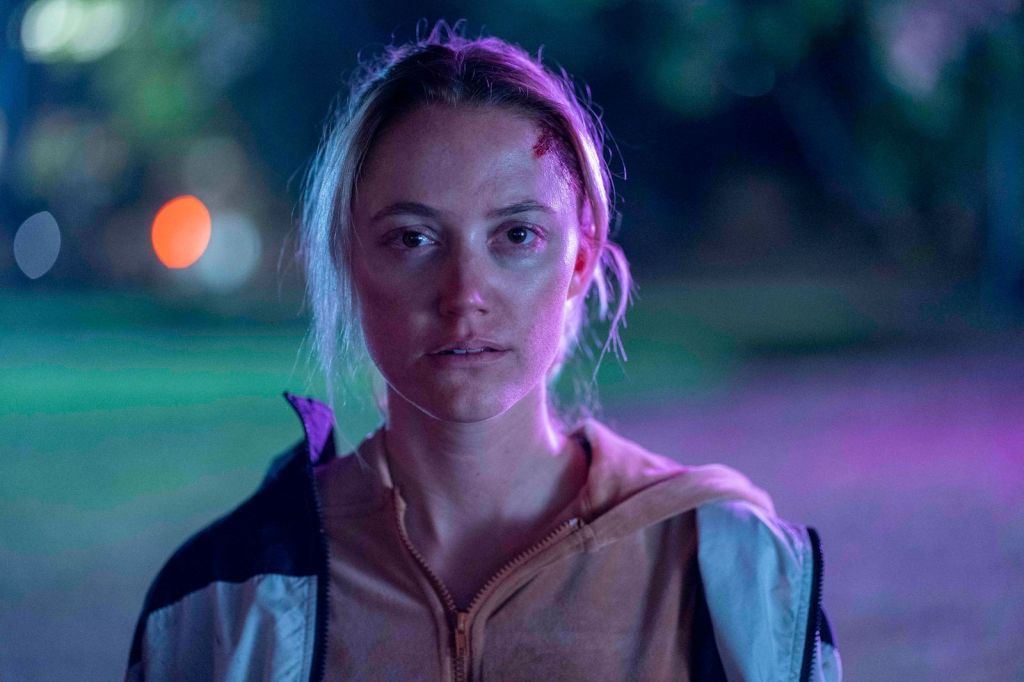Annie Baker’s Janet Planet feels like a very specific type of childhood memory, both in the naturalistic ways it plays out via its own patient rhythm and because of the Northeast locale centered between wooded trees and late-era hippie wisdom. It also falls into that category of “slow cinema” where every emotion and line reading’s given space to marinate. It may not be a film for all tastes, but it does earn tender points for the way it never panders to the audience and its poignant denouement that stays true to its refusal for easy answers.
Essentially a tale about the queasy bond between 11-year-old Lacy (Zoe Ziegler) and her complicated single mother Janet (an absolutely wonderful Julianne Nicholson), Lacy’s wobbling attitude is shown from the get-go when she steals away in the middle of the night from her summer camp bunkmates to call home, telling her mother she’ll kill herself if she has to stay any longer. As someone who basically did the same thing when I was her age, the pangs of childhood separation and attempt to mold us into the world of adults- fending for ourselves and away from the established comforts of family- felt very familiar…. and very terrifying.
Once home for the summer and given her camp reprieve, Janet Planet doesn’t have any major plot thrusts. Divided into categories of the names of people who float in and out of her mother’s life during these few summer months (both in terms of sexual partners, played by Will Patton and old girlfriends embodied by Sophie Okonedo), the film is mostly consumed by Lacy’s silent observations of her mother. In fact, the point of view is so strong, writer-director Baker carefully establishes a mise-en-scene framed through these inquisitive stares. Window frames block portions of the action as it occurs in the yard below, or the especially explosive sound of a door being shut in one’s face feels like an earth-shattering boom. There’s never any real danger, child abuse, or huge outbursts of emotion. Lacy is an observer in her mother’s atmosphere, and the film follows her pensive, curious nature about the liberal lives playing out around her.
In fact, the most pressing moment of the film- a bedtime conversation between Lacy and her mother, asking if she’d be upset if she grew up to date girls- is played out with quiet, compassionate, and even slightly humorous exposition. And that’s the real treasure of the film. I’m not familiar with writer-director Baker’s other efforts in the theater, but her sense of muted wisdom and careful conversational pauses certainly lends itself from the stage theatrics of naturalistic theater to chip away softly at hard truths.
Outside of the adolescent agony that Lacy experiences, not all of Janet Planet successfully lands. There’s a diversion concerning a spiritual camp (led by the “cult” leader played by Elias Koteas) that feels misplaced, and when the tone of the film tips toward some magic realism with his character towards the end, its focus away from Lacy isn’t as compelling. Add to that, a lot of the film is stretched to ponderous lengths which minimizes some of its contained momentum.
But what remains- mainly the sense of summer ending and the pull of anxiety as we start a new school year, and the idea that children always see more than anyone expects, and then spend most of their time trying to decode the weird world of adults- shows that filmmaker Baker has lots to say going forward.
Janet Planet opens in the Dallas and Fort Worth area on Friday June 28th.



